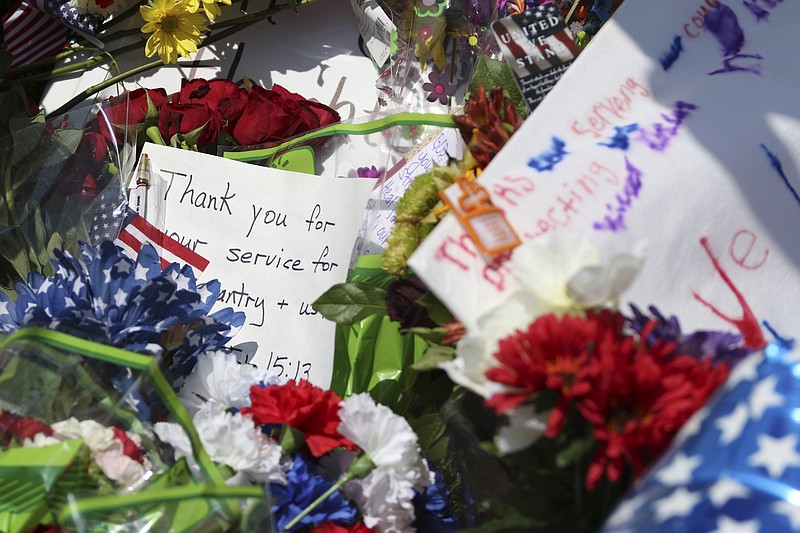Several years ago, my airline crew members and I had just landed and were traveling to our hotel in Manchester, N.H. On a busy highway, a young flight attendant read the state motto on the license plate of a passing car. She remarked, "Live Free or Die" - what a stupid thing to put on a license plate!" I was incredulous and started to respond to her indignant comment when I realized the futility. She was obviously ignorant of our nation's history and founding principles. I fumed silently but have reflected on her comments many times since, especially near Memorial Day, the only day set aside to remember our servicemen who died fighting for us (Veterans Day honors all veterans).
Memorial Day has roots in the Christian faith of most of our Southern ancestors. Springtime gatherings to tidy cemeteries and decorate the graves of passed loved ones with flowers extended from the Virginia highlands throughout the Southern states and into the Ozark Mountains. In fact, most communities designated specific Sundays to gather at churches to celebrate with sermons, singing and "dinner on the grounds." The meals were originally served on the ground near the cemetery as a way of communing with the deceased and were symbolic of a future gathering in eternity. Eventually, communities constructed covered pavilions for such dinners, many of which can still be seen near rural churches throughout the South.
Such Southern traditions were naturally applied to the grieving process in the aftermath of the War Between the States. The war was devastating for the Union states but even more so for the Confederacy. While 360,000 Union soldiers died out of a population of 18.5 million (1.9 percent), 260,000 Confederates died out of a population of only 2.5 million (10.4 percent). The post-war economy boomed in Northern states and many grew wealthy, but in the South, everything was "gone with the wind." Only memories survived. Accordingly, Southern states specified memorial or decorating days - April 26 for Georgia and June 3 for Tennessee.
Several years after the war, Mary Logan witnessed a Decoration Day service at a Confederate cemetery in Petersburg, Va., and was very moved by it. She encouraged her husband, Maj. Gen. John Logan, commander of the Grand Old Army of the Potomac (Union veterans), to establish such a tradition. In 1868, Logan announced that on May 30 all veterans should spend time "decorating the graves of comrades who died in defense of their country."
"Memorial Day" soon became a holiday in all Northern states, but Southern states celebrated Confederate Memorial Day separately until after World War I. The North then began to honor all U.S. soldiers killed in battle, not just those killed in the War Between the States, and slowly the South began to celebrate a common national memorial day as well. In 1971, the U.S. government, by law, designated the last Monday in May as Memorial Day.
It is fitting to honor those who died for our freedom, perhaps this Memorial Day more than ever. Why? Our current political leadership in Washington, along with many social and academic elites, deny our nation is exceptional. Instead, they insist our republic is melding into a giant, diverse global state and argue those Americans who wish to keep our laws and freedoms inviolate are somehow greedy and ignorant. Both perspectives cannot predominate within our society. One must eventually give way to the other.
Thomas Jefferson gave us a hint to the outcome: "The natural process of things is for liberty to yield, and government to gain ground." American martyrs from the Revolutionary War to Afghanistan gave their lives to preserve freedom for us and others throughout the world. Will we have the courage, in the face of tyranny, to "live free or die" as they did for us?
Roger Smith, a local author, is a frequent contributor to the Times Free Press.
